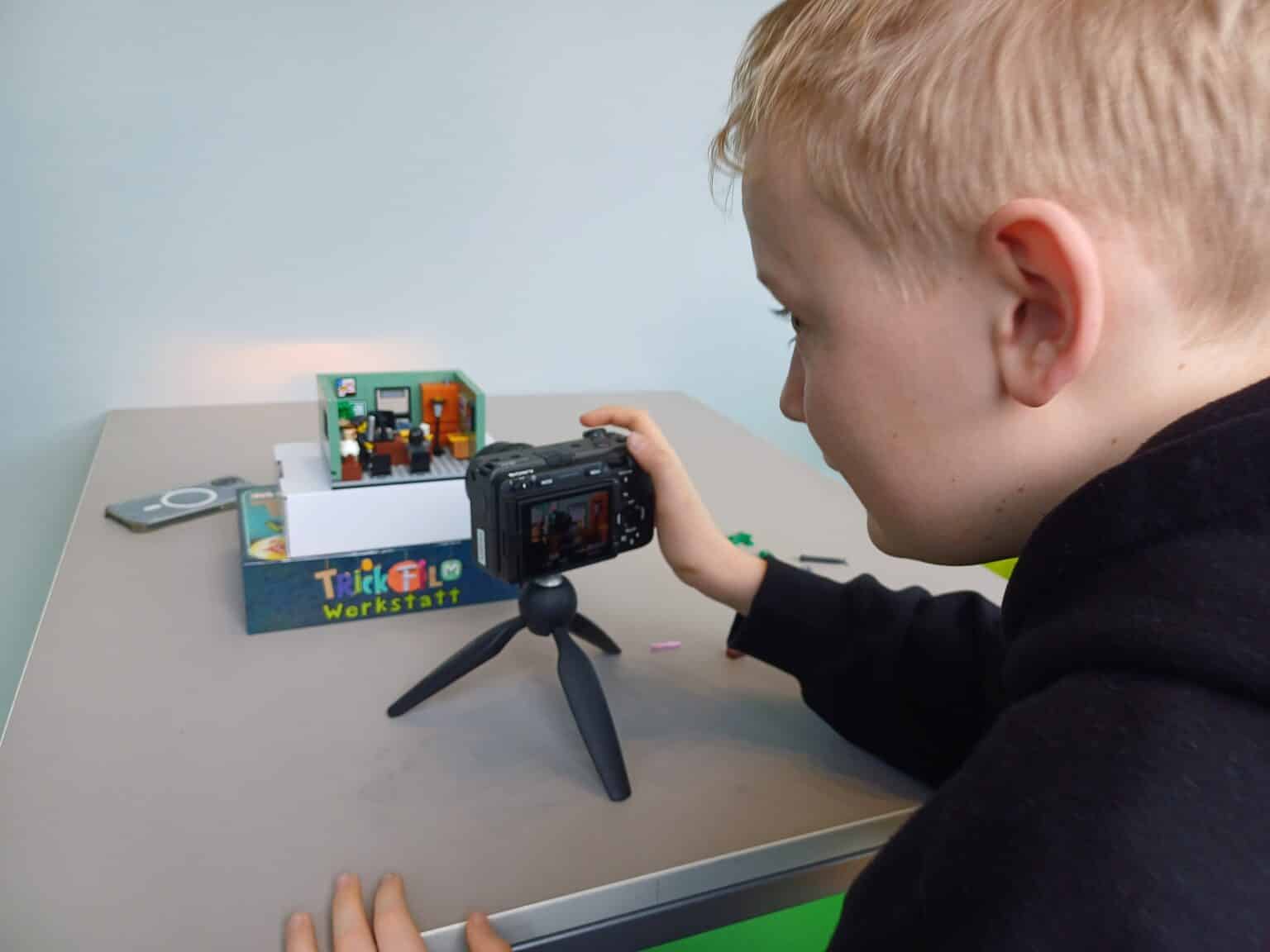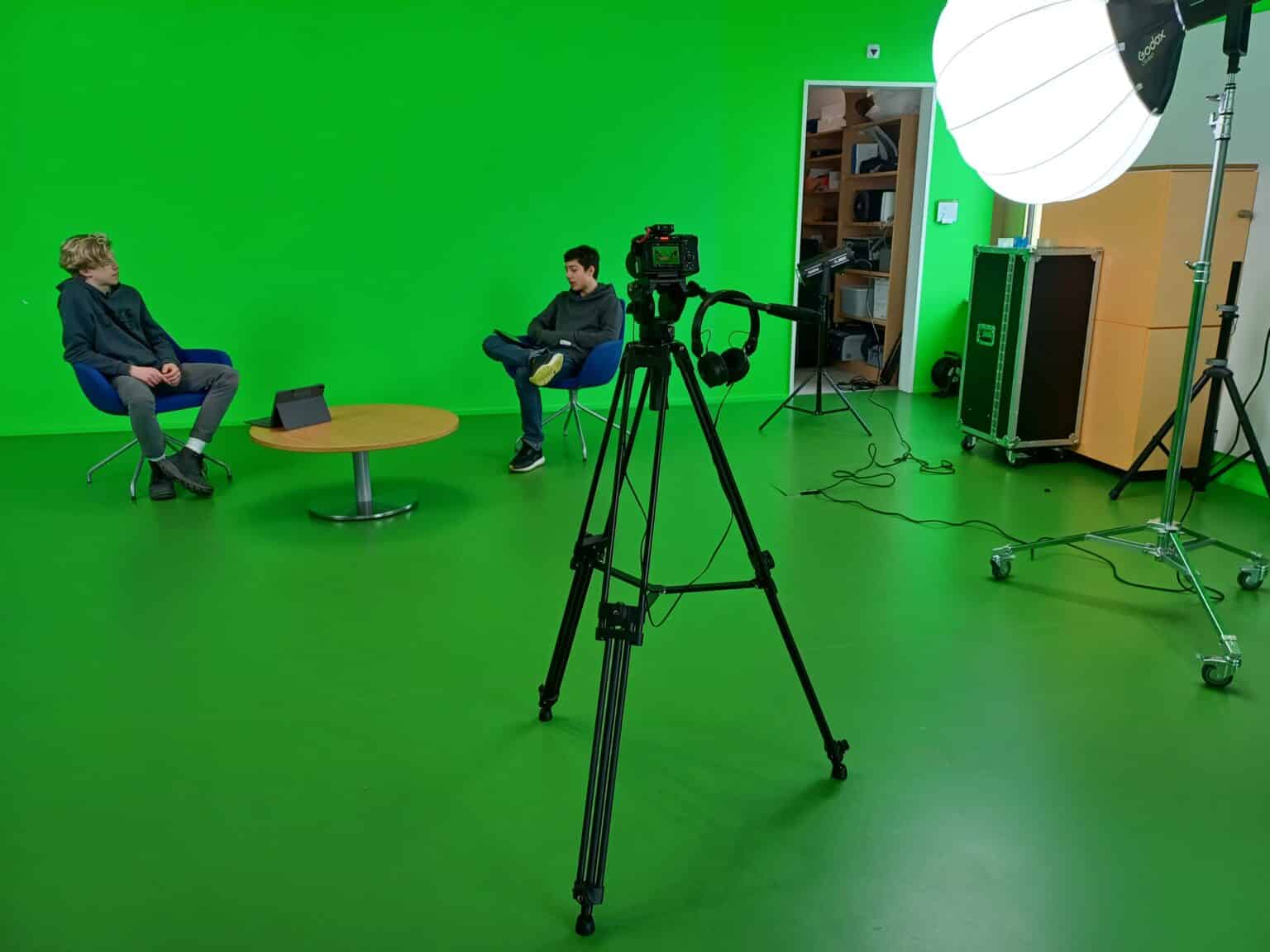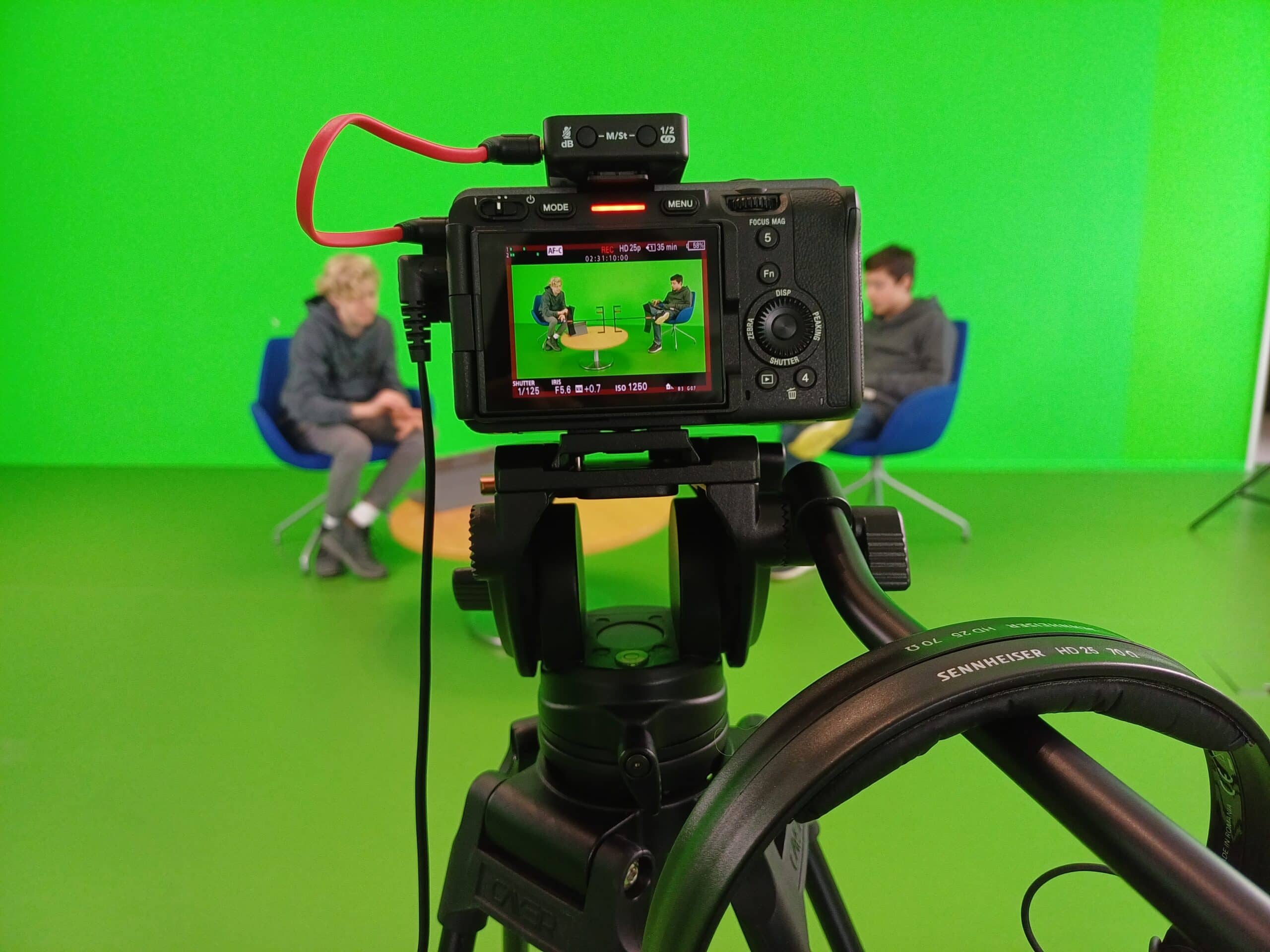Media theory, storytelling and technical expertise
In our digitally focused, visually oriented, and opinion-shaped era, media literacy is crucial. It’s essential to comprehend the workings of media, to classify them, and to be proficient in their use. Therefore, we’ve enriched traditional coursework in language arts, media studies, and the arts with relevant, hands-on material, resulting in the creation of the OBS Media Academy.


FASCINATION WITH FILM AND MEDIA
Films and computer games are omnipresent. They provide entertainment, they stimulate the imagination, and they are fun. Nevertheless, only some people realise that the film and computer games industry is one of the world’s fastest-growing, largest and most future-proof economic sectors. New professional and vocational fields are constantly emerging. Did you know, for example, that numerous architects are hired to construct virtual cities in many computer games featuring realistic settings, ensuring that the in-game environments align accurately with real-world data?
IMPORTANT EDUCATIONAL COMPETENCIES
The film and media industry exert a considerable influence on our perception of the world. Therefore, it comes as no surprise that media literacy is a key component of LP21 in Switzerland. This curriculum emphasises that students should be able to decode, critically evaluate, and utilise media and its contents. They should also be capable of expressing their thoughts, opinions, experiences, and knowledge through media contributions while adhering to legal regulations, rules, and ethical principles. Additionally, students should possess the skills to engage interactively with media, communicate effectively, and collaborate with others.
No industry reflects these learning objectives like film and game design. Until a few years ago, game design was considered the domain of software developers, but now filmmakers are calling the shots. As part of the OBS Media Academy, we give our students the opportunity to get closer to this fascinating world, understand it better, and act in it.
INTERDISCIPLINARY & PRACTICE-ORIENTATED
What makes a good film? Why is the success of a film or computer game so dependent on storytelling? How do you tell a story, and what rules does a good film script follow? What is game theory? Which classic games can be found in modern computer games? Which disciplines work together in film or game production, and which technological developments are essential?
During the three-year programme, we focus on all essential filmmaking and game design aspects. We start by looking at the historical and theoretical foundations before moving on to the various departments. Storytelling, lighting and sound design, editing, camera and post-production are on the timetable, the associated legal framework, such as copyrights and personal rights, and marketing, distribution and sales activities.
Students apply their knowledge by producing their own short films or computer games. In doing so, they undertake managerial roles and develop their communication, problem-solving, and time management skills in cooperation with others. They learn to draw up a budget, control costs, and market their production.
THE POWER OF VISUAL COMMUNICATION
Beyond media proficiency, the programme also cultivates linguistic and social competencies in line with LP21. Working on films or computer games enhances a range of skills, including creativity, cultural understanding, information literacy, and critical thinking and analysis – competencies that are advantageous across various professions. Students particularly thrive under this interdisciplinary and hands-on approach.
FILM HISTORY AND THEORY
The film history and theory component of our curriculum covers the evolution of cinema, various cinematic movements, the works of influential directors, and key theoretical concepts central to film studies.
FILM PRODUCTION
The film production aspect of our curriculum introduces students to the essentials of filmmaking, covering camera operations, lighting techniques, sound recording, and editing, and concludes with a practical project in which students produce a short film.
SCREENPLAY AND DRAMATURGY
The screenplay and dramaturgy module of our course teaches the art of writing a screenplay, focusing on character development, plot construction, dialogue creation, and storyboarding, along with analysing various directing strategies.
COMPETENCES IN DIRECTING, CAMERA AND EDITING
The competencies in directing, camera, and editing component of the programme involves training in working with actors, visual storytelling, scene composition, mastering camera work—including image composition, framing, and lighting techniques—operating camera equipment, utilising editing software, employing techniques for cutting and assembling film material, and understanding post-production processes.
SOUND AND PRODUCTION DESIGN
The part of the programme provides training in the recording and editing of sound for film, encompassing dialogue, music, and sound effects, as well as production design, which includes set design, costumes, props, and artistic direction.
FILM BUSINESS AND GAME INDUSTRY
Students will gain an understanding of the business side of filmmaking, distribution, marketing, financing, film festivals and screening. They will attend the OBS film festival as well as visiting external festivals. Students will discuss ethical considerations in filmmaking, diversity and representation in the industry.

